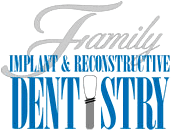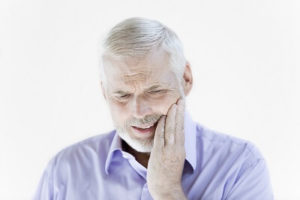Fear of Dentists
Dental anxiety and dental phobia are serious conditions. They affect millions of Americans and cause untold amounts of discomfort. Dental anxiety and dental phobia also prevent millions of people from getting the dental attention they require. This is a big deal because when people don’t go to the dentist twice per year, their health will deteriorate and many complications will follow.
What Are Dental Anxiety and Dental Phobia
Between 9% and 15% of Americans avoid going to the dentist due to dental anxiety and dental fear, but these two conditions are not the same thing. Dental anxiety is defined as an abnormal fear or dread of visiting the dentist for any type of treatment, even routine preventative care. Dental phobia, on the other hand, is a much more serious condition.
Dental phobia leaves people panic-stricken by the mere thought of visiting a dentist. Even when people realize that this fear is irrational, they are unable to reduce the phobia without engaging in some form of psychological intervention.
Stressed from Just Thinking about It
Even though most dental procedures aren’t painful, people with dental anxiety or dental phobia can become stressed merely by contemplating a dental examination:
those with dental anxiety will have a sense of uneasiness when it’s time for their appointments. They’ll have exaggerated or unfounded worries or fears. Dental phobia is a more serious condition. It’s an intense fear or dread. People with dental phobia aren’t merely anxious. They are terrified or panic stricken.
Triggers for Dental Anxiety and Dental Phobia
There are several situations and apprehensions that can trigger dental anxiety or dental phobia, including:
- Fear of pain
- Feelings of helplessness
- Embarrassment, particularly relating to the condition of their teeth
- Negative interactions with a dentist in the past
- Fear of being tipped back in a chair
- Fear of injections
- Fear of gagging
- Apprehension caused by noise made by dental machinery
- Fear of receiving unnecessary treatment
- “Extreme Startle Response,” often resulting from childhood abuse
- Apprehension caused by ongoing health concerns
Dental Anxiety and Dental Phobia Disrupt Dental Care
Of course, when people avoid the dentist due to dental anxiety and dental phobia, eventually their dental health is going to suffer. And research demonstrates that “people with dental phobia have a higher risk of gum disease and early tooth loss.”
It is clearly essential that dentists, psychiatrists, social workers and counselors work together to come up with strategies and practices to combat the effects of dental anxiety and dental phobia.
Treating Dental Anxiety and Dental Phobia
The following strategies have been successfully employed by dentists to counteract the effects of dental anxiety and dental phobia:
- Employing non-threatening verbal and body language
- Scheduling frequent breaks throughout the procedure (“structured time”)
- Utilizing positive verbal reinforcement
- Eliminating white “scrubs.” Other colors, such as blue, have a calming effect
What Patients Can Do for Themselves
There are also strategies that patients who suffer with dental anxiety and dental phobia have successfully adopted to help neutralize the effects of dental anxiety and dental phobia.
- Hypnosis
- Systematic desensitization (gradual exposure to disturbing stimuli)
- Breathing exercises
- Self-hypnosis
- Visualization (picturing oneself in a “happy place” to counteract disturbing stimuli)
Dr. Grubb is Committed to Providing the Best Dental Care
Dr. Richard Grubb and our entire team at Family Implants and Restorative Dentistry in Havre de Grace, Maryland are committed to providing our patients with the best possible dental care. And this includes everything we can do to provide our clients with a friendly and comfortable atmosphere.
Call to Schedule a Checkup Today
Give us a call at Family Implants and Restorative Dentistry in Havre de Grace to schedule a checkup. Please let us know in advance of your appointment if you are feeling any type of fear or anxiety. Together, we’ll come up with a strategy to help get you through this.

